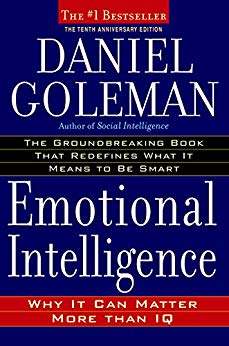

This article is an excerpt from the Shortform summary of "Emotional Intelligence" by Daniel Goleman. Shortform has the world's best summaries of books you should be reading.
Like this article? Sign up for a free trial here .
Are you an emotional repressor? Do you suppress emotions from childhood, anger, sadness, or other feelings?
Learn more about repressors, and how to healthily deal with your emotions.
How to Feel Your Emotions
Emotionally self-aware people are aware of their moods as they happen but can be mindful about how they deal with them. They’re more sure of their boundaries since they know how they’ll feel. They don’t dwell on bad moods and can get out of ruts faster. They can be mindful of their emotions and manage them successfully.
In contrast, emotional repressors are people who repress their emotions routinely and automatically erase emotional disturbances from their minds and their awareness.
This can be positive or negative. When it’s positive, it might be more appropriate to call these people unflappables. They’re actually deft experts at handling their own emotions, capable of pushing emotional responses out of their brains without much struggle and going on about their business. They’ve gotten so good at it, in fact, that they aren’t even aware of their negative feelings. They’ve silenced them completely.
Of course, on the negative side, this can also mean the person is completely out of touch with their emotions, still experiencing primarily physiological symptoms of emotions but being totally oblivious to the emotional cause of these symptoms.
- This can often be the result of surviving a troubling situation early in life, such as having an alcoholic parent or suffering abuse. Parents who are repressors in this negative way also pass it on to their children as the appropriate way to deal with emotions, whether through nature in their DNA or through nurture in the family dynamic.
Neurologically, people who are genuine repressors are not feigning this obliviousness to emotional strife: their brains are essentially keeping this emotional information from them. People who exhibit repeated emotional repression have been found to have more brain activity in their left prefrontal lobe than their right–the left prefrontal lobe is the center of good feelings, while the right is the center for negative feelings.
———End of Preview———

Like what you just read? Read the rest of the world's best summary of Daniel Coleman's "Emotional Intelligence: Why It Can Matter More than IQ" at Shortform . Learn the book's critical concepts in 20 minutes or less .
Here's what you'll find in our full Emotional Intelligence summary :
- What are emotions? Why do we have them?
- What is emotional intelligence? Why is it important?
- How do you manage your own emotions? Anger, anxiety, and sadness?
- How can you approach your relationships with more emotional intelligence?
- How can you teach your children emotional intelligence?
- How can emotional intelligence boost your career?






